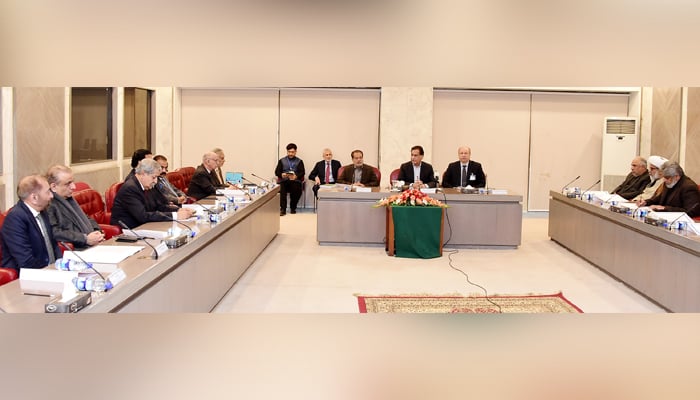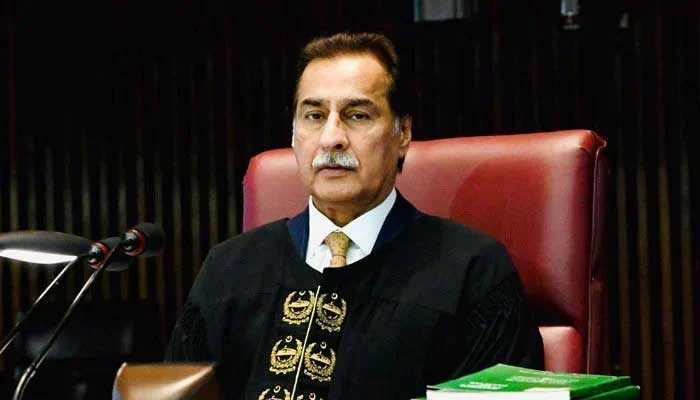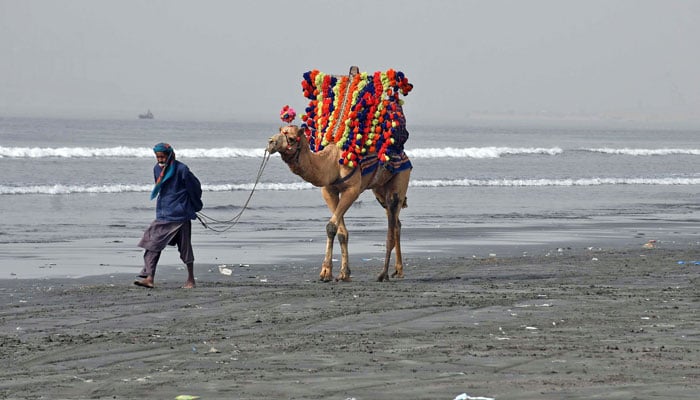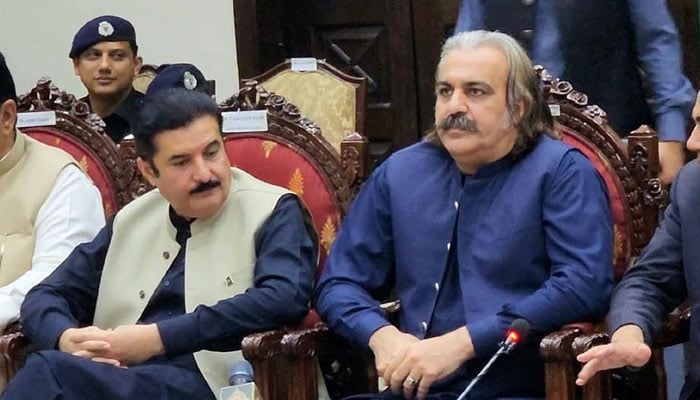KP Apex Committee decides to ‘remove bunkers’ in Kurram amid peace efforts
Interior Minister Mohsin Naqvi assures committee of centre’s full support

- Interior Minister promises full support for peace efforts.
- Provincial steps to enhance law enforcement reviewed.
- Talks ongoing to retrieve weapons from locals.
PESHAWAR: The Khyber Pakhtunkhwa (KP) Apex Committee on Friday decided to dismantle all private bunkers in the Kurram district as part of efforts to restore peace in the region.
The significant decision was made during the high-level meeting chaired by Chief Minister Ali Amin Gandapur and attended by Interior Minister Mohsin Naqvi, the Peshawar Corps Commander, the provincial chief secretary, the inspector general, and key cabinet members.
Tribal clashes have killed more than 200 people since July, with various truces announced since the latest round of fighting began, as elders from the two sides negotiate a lasting agreement.
In the meantime, the government has shut down key roads in and out of the district in an attempt to quell the violence, after a security convoy escorting residents was attacked in November, leaving more than 40 dead.
Meanwhile, participants of the Apex Committee were briefed on the province’s peace initiatives and the progress of the grand jirga. The committee discussed strategies to prevent future unrest, emphasising the need for disarmament alongside the removal of private bunkers.
Interior Minister Naqvi assured the committee of full support from the federation, saying that ensuring peace in Kurram is a top priority.
He also pledged to enhance the capabilities of law enforcement agencies within the province.
The committee acknowledged the importance of continued dialogue with local residents to facilitate the return of weapons. The dismantling of private bunkers is expected to contribute significantly to stabilising the region and fostering long-term harmony.
Naqvi-Gandapur meeting
Ahead of the huddle, Minister Naqvi arrived at the Chief Minister’s office in Peshawar, where he held a meeting to discuss the security situation in KP and the steps being taken to maintain peace in Kurram district.
Interior Minister Naqvi assured the chief minister of full cooperation in ensuring peace, saying that enhancing the capacity of law enforcement agencies in Khyber Pakhtunkhwa would be fully supported.
Naqvi also highlighted the need for consultation with all stakeholders to ensure sustainable peace in Kurram. Both Naqvi and Gandapur paid tribute to the law enforcement agencies’ martyrs in the fight against terrorism, calling them a source of pride.
“Martyrs are our pride, and we salute their timeless sacrifices,” Naqvi said. Chief Minister Gandapur added: “The sacrifices of our martyrs are unforgettable. Together, we will confront the monster of terrorism.”
Governor seeks govt’s resignation
KP Governor Faisal Karim Kundi had a day earlier called for the provincial government’s resignation, citing its failure to address the worsening situation in Kurram district.
In a statement, Governor Kundi criticised both provincial and federal authorities for their inaction, remarking: “Kurram is burning — what are the provincial and federal governments doing?”
He questioned the administration’s inability to reopen the Parachinar road, adding that the government appears to have no agenda other than retaining power.
Due to the latest tensions, residents have reported food and medicine shortages in parts of Kurram district, which borders Afghanistan, as the government struggles to end the reignited feud.
At least 133 people have been killed and 177 wounded in sporadic clashes since November 21.
Mobile and internet services are also disrupted in the area.
The Human Rights Commission of Pakistan said 79 people had been killed in the region between July and October.
Police have regularly struggled to control violence in Kurram, which was part of the semi-autonomous Federally Administered Tribal Areas until it was merged with Khyber Pakhtunkhwa in 2018.
The feuding is generally rekindled by disputes over land in the rugged mountainous region, and fuelled by underlying tensions between the communities.







